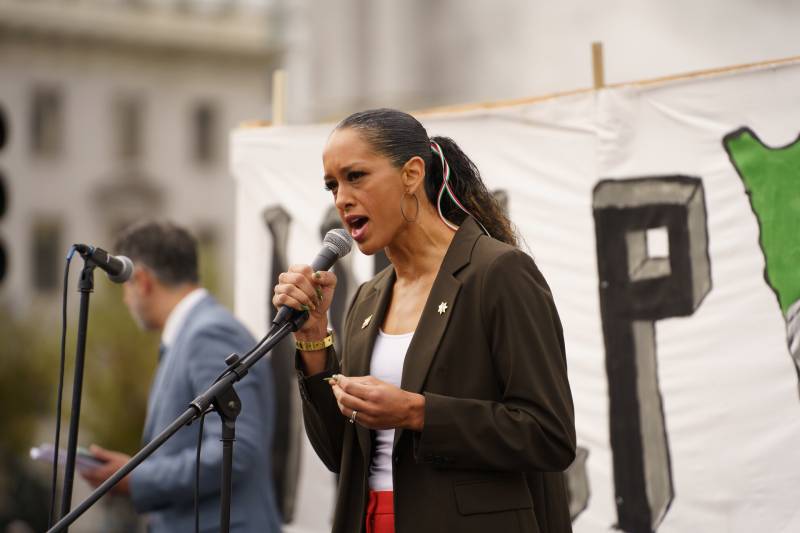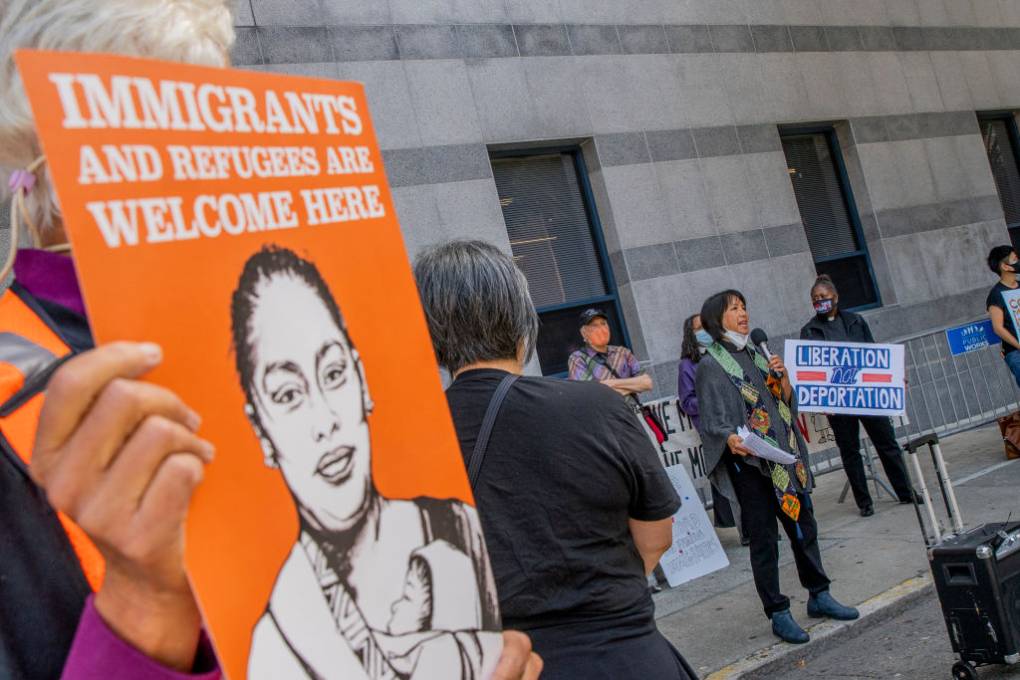“After meeting with the victims of these horrific crimes and community leaders, I have asked Supervisor Catherine Stefani to table our two ordinances that would allow limited exceptions to our policy to authorize a parole entry agreement with the Department of Homeland Security,” Jenkins said in a prepared statement.
Jenkins in February asked the Board of Supervisors to make an exception to the sanctuary ordinance for two men, one accused of raping a child and another who is suspected of domestic violence and murder. Both suspects are Mexican nationals who have fled the United States.
Jenkins previously said that federal authorities would refuse to seek extradition of the suspects unless San Francisco changed its decades-long stance on immigration enforcement.
On Thursday, the Public Safety and Neighborhood Services Committee, which consists of Supervisors Stefani, Dorsey and Joel Engardio, voted unanimously to table the amendments.
“I was here in 2019 when DHS asked us to do this very same thing, and then it turned out we didn't need to do it at all because they brought the individual back without any amendments whatsoever,” Stefani said before the committee.
In her statement, a stark reversal from her previous stance, Jenkins stated that federal authorities could pursue the two men without San Francisco compromising its sanctuary laws.
“We will work with and call on the federal government to expedite the apprehension and transportation of the wanted domestic violence murderer and child rapist who fled the country,” Jenkins wrote. “My priority is delivering justice for these families who have been waiting years. Time is of the essence in these cases and the federal government, if it chooses to, can offer these families their best shot at seeing justice done.”
Stefani said the district attorney reassured her that she is working with the federal government to expedite the apprehension and extradition of the suspects.
“Their assistance in these cases will ensure that we are able to live up to our mutual commitments to the people of San Francisco, the state of California and the United States,” Stefani said.
Meanwhile, another proposal to amend the sanctuary law appears not to have enough votes from the supervisors to pass. That proposal, put forward by Dorsey, would add people charged with dealing fentanyl to the city’s list of exceptions for sanctuary protections.


